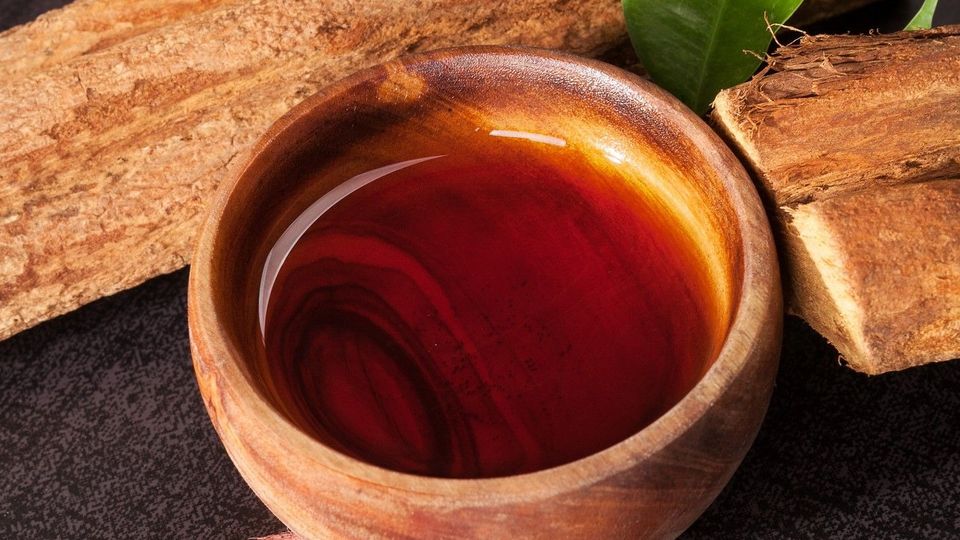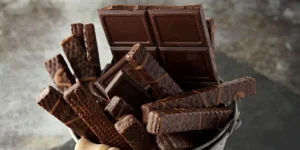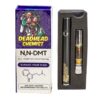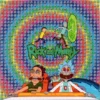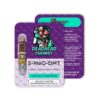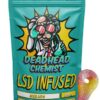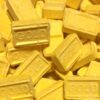Tabernanthe iboga is a shrub or small tree that is native to Central Africa. It is a member of the Apocynaceae family, and it is closely related to the coffee plant. The plant contains the alkaloid ibogaine, which has been used in traditional African cultures for centuries for its medicinal and spiritual properties.
Ibogaine is a psychoactive substance that has a number of potential therapeutic benefits. It has been shown to be effective in the treatment of addiction, depression, and anxiety. It is also thought to have neuroprotective effects, and it may be useful in the treatment of Alzheimer’s disease and other neurodegenerative disorders.
However, ibogaine is also a dangerous drug, and it can cause serious side effects, including seizures, psychosis, and death. It is important to note that ibogaine is a Schedule I controlled substance in the United States, and it is illegal to possess or use without a prescription.
Despite the risks, ibogaine is a promising drug with the potential to help people with a variety of conditions. More research is needed to understand the full potential of ibogaine, and to develop safe and effective ways to use it.
What is Tabernanthe manii?
The use of Tabernanthe iboga dates back centuries in traditional African cultures. The Bwiti people of Gabon, for example, have used iboga in their religious ceremonies for centuries. Iboga is believed to help people connect with their ancestors and to achieve spiritual enlightenment.
In recent years, there has been growing interest in the potential therapeutic benefits of ibogaine. In the 1960s, Howard Lotsof, an American doctor, began to study the use of ibogaine in the treatment of addiction. Lotsof found that ibogaine could help people to break their addiction to heroin, cocaine, and other drugs.
Since then, there have been a number of studies that have shown the potential of ibogaine in the treatment of addiction. However, more research is needed to confirm these findings and to develop safe and effective ways to use ibogaine.
It is important to note that ibogaine is a Schedule I controlled substance in the United States therefore Tabernanthe manii can be a dangerous drug if wrongly administered , and it is illegal to possess or use without a prescription.
Our Iboga is “sacred” and sold only on prescription to returning customers ONLY. New customers should contact info@lucidworld.net for any inquires related to this medication. We do free online consultation and Psycho- evaluation prior to providing a prescription which qualified you to purchase the ibogaine from our shop.
New clients should follow this proceed or contact retreats@lucidworld.net to book a psychedelic therapy session. We offer both in-house therapy, iboga and Ayahuasca retreat trips.
Many have passed through the angelic hands of our therapist and thanks to the procedure they have been able to demonstrate signs of more self awareness, empathy, improved communication skills and overall personal growth.
Potential Therapeutic Benefits of Ibogaine
Ibogaine has a number of potential therapeutic benefits, including:
- Treatment of addiction: Ibogaine has been shown to be effective in the treatment of addiction to a variety of drugs, including heroin, cocaine, and alcohol. Ibogaine appears to work by resetting the brain’s reward system, which can help people to break their addiction.
- Treatment of depression: Ibogaine has also been shown to be effective in the treatment of depression. Ibogaine appears to work by increasing the levels of serotonin and dopamine in the brain, which are two neurotransmitters that are involved in mood regulation.
- Treatment of anxiety: Ibogaine has also been shown to be effective in the treatment of anxiety. Ibogaine appears to work by reducing the activity of the amygdala, which is a part of the brain that is involved in fear processing.
- Neuroprotection: Ibogaine has also been shown to have neuroprotective effects. This means that ibogaine may be useful in the treatment of Alzheimer’s disease and other neurodegenerative disorders.
- The plant contains a number of other alkaloids besides ibogaine, including tabernanthamine, ibogamine, and voacangine. These alkaloids may also have therapeutic benefits, but more research is needed to confirm this.
- The root bark of Tabernanthe iboga is the most commonly used part of the plant. However, the leaves and seeds can also be used.
- The effects of ibogaine can last for several days. This means that people who take ibogaine need to be monitored for a period of time after taking it.
- There are a number of clinics in the United States and Canada that offer ibogaine treatment. However, it is important to note that ibogaine is not FDA-approved, and there is no guarantee that it will be effective for everyone.
Risks of Ibogaine
Ibogaine is a dangerous drug, and it can cause serious side effects, including:
- Seizures: Ibogaine can cause seizures, especially in people who have a history of seizures.
- Psychosis: Ibogaine can cause psychosis, which is a condition that includes hallucinations and delusions.
- Death: Ibogaine can be fatal, especially in high doses.
It is important to note that ibogaine is a Schedule I controlled substance in the United States, and it is illegal to possess or use without a prescription.
Conclusion
Tabernanthe iboga is a promising plant with potential therapeutic benefits. However, ibogaine is also a dangerous drug, and it is important to weigh the risks and benefits before using it. More research is needed to understand the full potential of ibogaine, and to develop safe and effective ways to use it.

